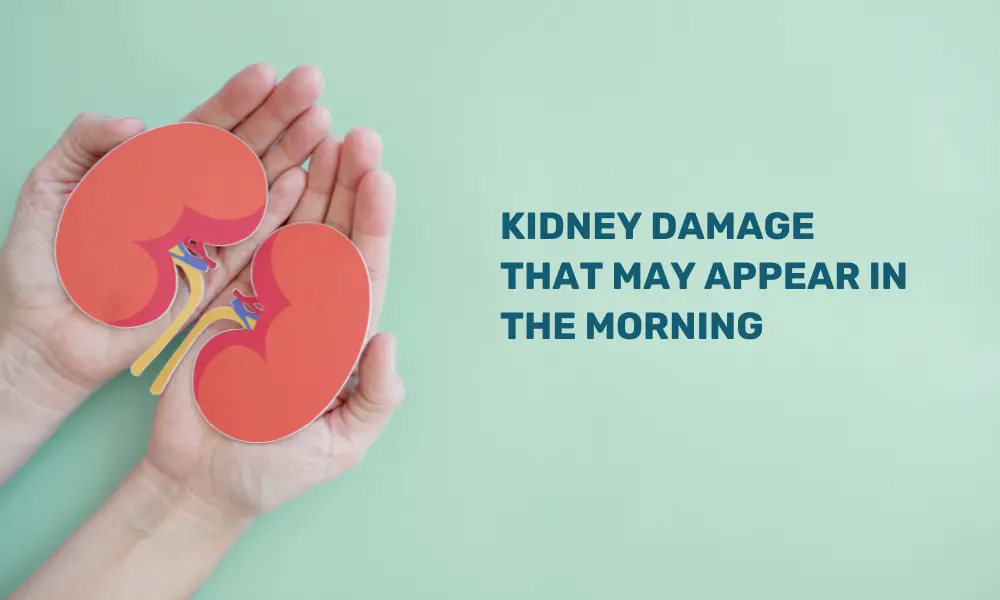Kidneys are among the most important organs, regulating salt, potassium, and pH. Multiple diseases, lifestyle habits, and genetic factors can affect kidney function and health. Kidney disease means that the organs are damaged and cannot filter blood the way they should.
What is a kidney disease?
Kidneys are the size of a fist and help regulate blood pressure and control the production of red blood cells while activating a form of vitamin D that helps the body absorb calcium. However, when kidneys get damaged, they stop performing their function. The damage may be caused by diabetes, high blood pressure, and various other long-term and chronic conditions. Additionally, kidney disease can lead to other health problems, including weak bones, nerve damage, and malnutrition. If the disease gets worse over time, your kidneys may stop working completely. This means that dialysis will be required to perform the function of the kidneys.
One may be at a greater risk of developing kidney disease if one has diabetes or high blood pressure. There are certain unusual signs of kidney damage in the morning that one must not ignore. A few of these may include:
-
Foamy or bubbly urine: If the first pee in the morning is foamy with little bubbles, it can be a sign of a kidney issue. According to doctors, the condition indicates the presence of excess protein in your urine, also known as proteinuria. It means that the kidneys are not able to properly filter and can also be damaged.
-
Bad morning breath: While bad breath is usually not a sign of kidney disease—if it has been happening persistently—and you can feel your breath smell like ammonia, consult your doctor. According to experts, it could potentially indicate a problem with your kidneys. When they are not functioning properly, toxins build up in the blood and can be expelled through your breath, leading to a bad odor, also known as uremic breath.
-
Facial puffiness: Slight swelling on the face after waking up in the morning may indicate kidney issues. Facial puffiness is a sign of kidney disease, especially when you have also had a few other symptoms like swollen ankles or feet. According to doctors, it indicates fluid retention due to the kidneys not properly filtering waste products from the blood. Doctors suggest the condition is mostly associated with excessive protein leaks into the urine, which cause swelling in various parts of the body, including your face.
-
Brain fog: When your kidney’s functioning becomes slow and dips, the toxins build up in your blood, making you feel tired and struggle to concentrate. It, thereafter, leads to chronic kidney disease, which causes anemia or lack of red blood cells, leading to extreme fatigue and brain fog. Experts suggest if you have been experiencing brain fog along with other potential kidney disease symptoms, it is important to consult a doctor for proper diagnosis and treatment.
-
Excessively dry skin and itchiness: Damaged kidneys lead to a buildup of toxins and wastes, which shrink your sweat glands. This slowly leads to dryness in the skin, which also causes excessive itching. Your body makes chemicals that cause allergies and itching symptoms that do not go away no matter how much you moisturize. This condition, known as uremic pruritus, is a big warning sign that you should consult your doctor about potential kidney issues.
Foods that naturally boost kidney health and function.
-
Pineapple, rich in vitamin C, is good for kidney health.
-
Apples contain fiber, vitamin C, and antioxidants, beneficial for kidney health.
-
Oranges, high in vitamin C, are beneficial for kidney health.
-
Blueberries contain antioxidants, vitamin C, and fiber that prevent kidney diseases.
-
Including grapes, rich in vitamin C and antioxidants, supports kidney health.
-
Olive oil is generally rich in antioxidants and healthy fatty acids and protects the kidneys.
-
Spinach, rich in vitamins and minerals, boosts immunity and prevents kidney diseases.
There is no doubt that proper functioning of kidneys is crucial, hence we must ensure that we are aware of these signs and avoid things that may affect our kidney health.
This article is meant for informational purposes only and must not be considered a substitute for professional advice.





